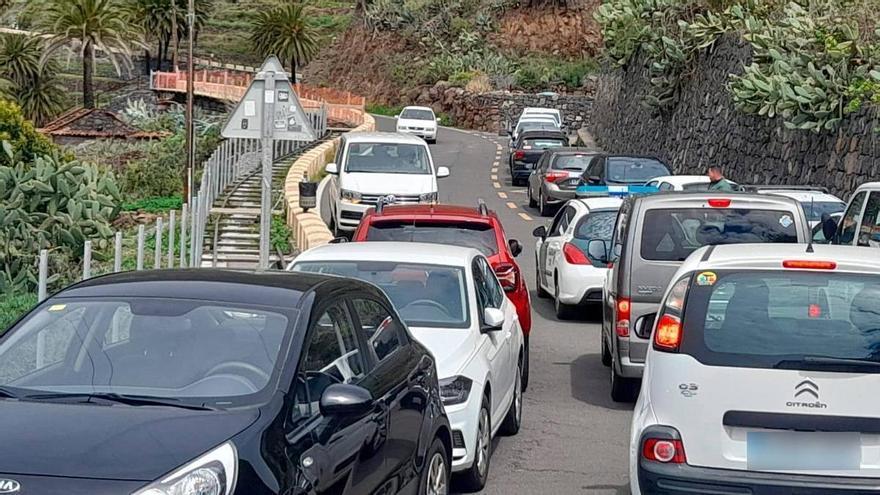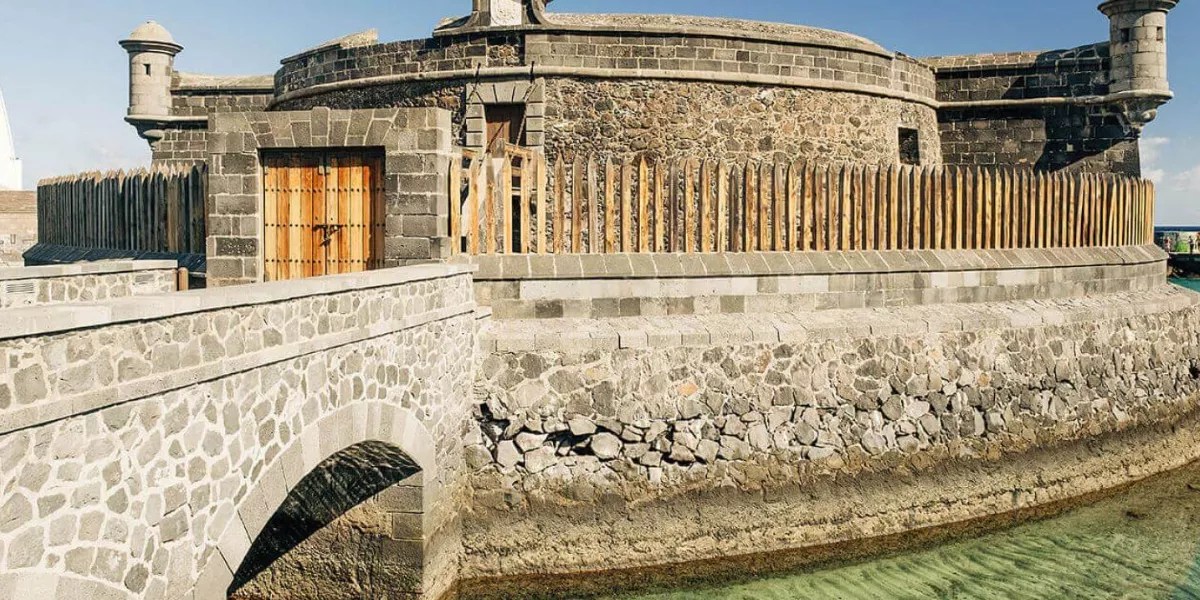
the hamlet of chewin Buena Vista del Nortehas been suffering for years from the large influx of visitors who must travel along a winding and narrow road, which they also share with buses, and the problems due to the shortage of parking and the lack of civility that those who park anywhere, hindering the mobility of vehicles and pedestrians. The end of the worst of the covid pandemic aggravated the overcrowdingwhich intensified after the reopening of the Masca ravine trail and, more recently, with the commissioning of the jetty. The collapse of traffic is a problem recognized by the residents, the city council and environmental groups and tourist guides, which once again puts the debate on prohibit access by car, as is already the case for most of the day in Punta de Teno.
the day pass without traceof the recent International Environmental Film Festival of Canary Islandsaddressed this month the “situation of mass tourism suffered by the Masca hamlet in Buena Vista del Norte» and, among other conclusions, the participants pointed out that this tourist pressure currently falls on the hamlet itself, declared an Asset of Cultural Interest (BIC), and about its barely 93 inhabitants, which are 24% fewer than in 1996.
frequent rescues
The regulation of the access to the ravine reduced the previous lack of control in a fragile, unique place and not exempt from risks, where rescues due to accidents of hikers are common, but also It has contributed to disperse the problem of unregulated visits to other areas of Teno, such as private farms or spaces for livestock use. Another of the conclusions of this meeting was that the citizens of the municipality must be involved and participate to launch actions that defend and prevent the deterioration of the natural and cultural heritage of the Teno Rural Park, in the face of the constant presence of tourists in the second enclave most visited natural park on the island of Tenerife, just behind the Parque Nacional del Teide.
pass without trace It was a meeting organized by the Telesforo Bravo-Juan Coello Foundation, in which the debate on Masca’s carrying capacity was opened. For the secretary of the Association of Neighbors of Masca, Javier Díaz, “Masca cannot be conceived only as a tourist product, but as a neighborhood of Buenavista del Norte in which the inhabitants have the same rights as the rest of the residents of the municipality”.
For this neighborhood representative, any decision about Masca must be taken taking into account the role of a population that “knows its history and defends its identity after residing in the area for more than five centuries.” Faced with the need for regulation and protection, the inhabitants of this hamlet also recognize that the creation of the Rural Park of Teno or the statement like Asset of Cultural Interest With the category of historical complex, in 2004, it has also meant inconvenience, restrictions, difficulties and limitations for the few inhabitants of this enclave in the Northwest of Tenerife. While the residents feel watched and limited in their quality of life, they believe that it is necessary to impose new limitations, ordering and moderation on tourist activity.
javier diaz made it clear that “the residents of Masca do not want to be native inhabitants of a reserve for tourism purposes.” A statement that coincides with the demands and complaints that the president of the Barranco de Masca neighborhood association has made publicly for years, Jose Riquelme Diaz Gorrinwhich in 2014 already warned that «public administrations cannot turn this place into mascaland, a theme park without inhabitants. And he stressed that “Masca cannot be a private garden for the administrations or continue to be a BIC with its head bowed.” In December 2020, he remarked that “the rules of the Teno Rural Park have Masca corseted and limited to zero growth.”
One of the problems that Masca currently has is that the Master Plan for Use and Management (PRUG) of the Rural Park of Tenowhich is supposed to guarantee coexistence between traditional agricultural activities and the conservation of the natural environment, is a protection instrument that “has expired for 12 years.”
Miguel Fernandez del Castillo, from the Association of Tourist Guides of Tenerife, pointed out in this debate that, in his opinion, “access to Masca must be limited according to the experience in Punta de Teno, so that it is not accessed by car.” To curb the impact generated by rental cars, he proposed that “tourist agencies look for alternatives in their excursion offers” and appealed to “the corporate social responsibility of tourist agencies.”
The use of shuttle buses
The former Councilor for the Environment of the Buenavista del Norte City Council Esteban Lorenzo (SSP) He pointed out at this meeting that the closure for the rehabilitation of the ravine over three years “made the public see the value of the proposal to use shuttle buses to avoid the impact of private vehicles” and ruled that “the farmhouse is now collapsed.” For this representative of If possiblethe solution is to “regulate traffic to prevent the circulation of large buses” and to carry out “a serious participatory process” that involves all the citizens of the municipality.
The director of the Telesforo Bravo-Juan Coello Foundation, Jaime Coello Bravo, recalled the tensions between gentrification processes (the renewal of popular or deteriorated areas that imply the displacement of their original population by another with greater purchasing power) and the needs of the population and the loss of quality of the landscapes. For Coello, It is key to curb mass tourist activity that “devastates nature, identity and heritage” in places as emblematic as the Masca hamlet.















